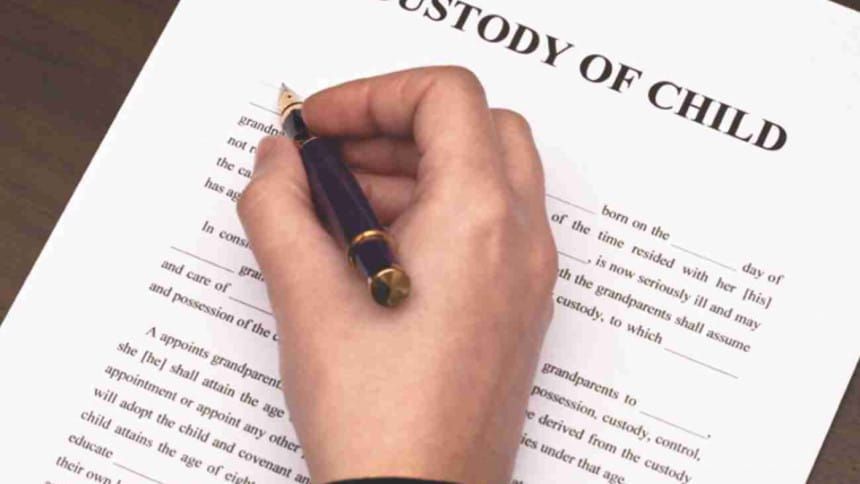Mother's remarriage and custody of children

MOHIT”- is the son (five years) of a divorced couple Atiq and Rehana. Both of them remarried and demanded the custody of Mohit where he chooses to stay with his mother. But Muslim Personal Law disentitles Rehana from the custody of her son for her blunder of remarriage. What will be the fate of Mohit and Rehana?
According to the traditional Muslim Jurisprudence a father is the natural guardian of the children and in his absence, nearer male relations from paternal side. A Muslim mother can never be the guardian of her minor child rather she can claim only the custody for a very limited period which is seven years in case of male child and age of puberty is the ceiling point in case of female child unless and until she remarry a stranger, i.e; a person not within the prohibited degrees of relationship to the girl. The underlying principle behind such theory is the presumption that if she marries a stranger, the child might be treated cruelty while he/she will be treated kindly if the mother marries a person closely related to the child. But, sometimes injustice may occur if we remain sophisticated to this principle especially when the child itself wants to remain with his mother.
Our judiciary took a positive turn back from the tradition by upholding the best welfare of child doctrine. Absence of clear Quranic injunction and lack of harmony among the Islamic jurists on the rules relating to custody have enabled the Courts to take some reasonable decisions which appear constructive towards both the mother and the children. Moreover, Section 17 of the Guardian and Wards Act, 1890 also obliged the Court to consider the welfare of the minors as a paramount point in deciding the custody of a minor.
Accordingly, in Ayesha Khanum v Major Shabbir Ahmed, 46 DLR,the High Court Division of Bangladesh declared that personal law of the parties are subject to the paramount need of the welfare of the child. There is no debate regarding the fact that the welfare of the minor lies with the mother. There is no substitution of motherly love and affection and no one can substitute her and the wellbeing and proper take care can be ensured only by mother. The assumption that mother will not take care of her own children in the event of her remarriage is not acceptable in all situation.
Thus, it is the consideration of the welfare of the minor which led the Court to take its first position in favour of the mother in the Haji Ali Baksh v Mst Baghul (15 DLR), where it was held by the Court that nobody having better title than the mother has come with this petition though she remarried after the death of her husband. Here, another claimant of the custody was the child's paternal uncle and according to Court the property of the minor is the main attraction for her uncle's demand of custody. Later on, in Akhtar Ahmad v Mst Hazoor Begum (17 DLR), the Court reiterated the observation. In Rahamatullah v Sabana Islam 54 DLR, the Court give its judgment with the underlying principle that where a widow has to remarry for the purpose of protection and shelter of the minor and herself, she should not lose her guardianship.
The judiciary of India and Pakistan also established the preferential rights of the mother to have the custody of minor child even in the event of her second marriage. References include the leading case Irfan Ahmed Shaikh v Mrs Mumtaz 1999, where the Bombay High Court affirmed that “there is no dogmatic insistence that the child must remain with the father even against the wishes of the child at the moment that the mother gets remarried to a stranger.”
These decisions of the court are some flaming examples of judicial activism in the family matters which make it feasible for lot of Mohits to get back their mother and these positive approaches of the judiciary will ultimately encourage women to claim their family rights through Court from which they are being deprived of.
The writer is a Lecturer, Department of Law, University of Chittagong.

 For all latest news, follow The Daily Star's Google News channel.
For all latest news, follow The Daily Star's Google News channel. 



Comments